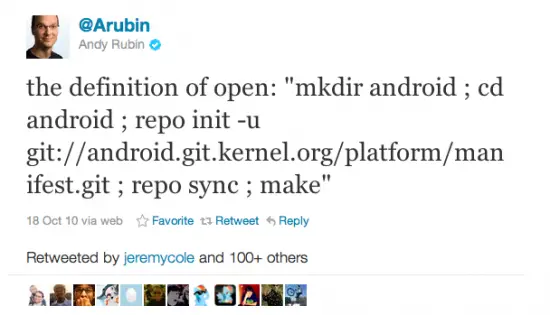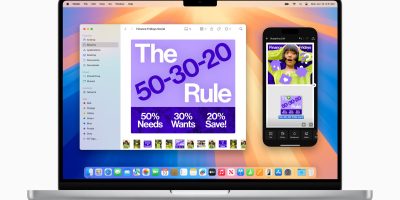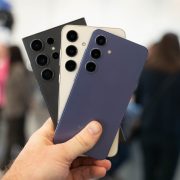Many of you might have heard about PandoDaily, a new tech blog that was launched on the 16th of January by Sarah Lacy, a former TechCrunch writer. One particular article caught my attention, primarily because of it’s title: How Google can save Android: Close it. License it. Swim in the Profits.

The writer, Farhad Manjoo, isn’t the first person to make the suggestion, and he most certainly isn’t going to be the last. Many have used the example of Amazon’s Kindle Fire and other such Android forks to suggest that Google’s strategy is back-firing. To his credit, the article doesn’t come off as an Apple fanboy mocking Android as many such posts do, and has offered some decent ideas.
But I must admit, right from the beginning the article seemed to miss the bigger picture. And that seems to be the case with all journalists, especially since Apple’s outstanding quarterly results which have put Google’s “failures” in the spotlight.
Google’s main competition isn’t Apple. It’s Facebook.
Google’s business, at this point, is advertising. And the most important resource for it’s business is information. It’s the same thing with Facebook. Google and Facebook are, as such, competing for the same pie. Apple, on the other hand, is a hardware company. It’s profits come almost entirely from the huge margins it has on all of its devices.
For Google to take on Apple in terms of profits and revenues, it has to virtually pivot itself into a consumer electronics company. Admittedly, the purchase of Motorola speeds things up a bit, but with Moto struggling it would be a long, hard struggle to reach the required level.
“Closing” Android will only make a bigger mess
This is where Manjoo gets it wrong almost entirely. While in theory it would increase Google’s earnings from Android, it’s an extremely short-sighted option.
The move would hit the wrong note with the developer community who have flocked around Android because of its open nature. Additionally, it’s going to give all those who have already (unfairly) questioned Android’s open sourced nature a chance to say “I Told You So”.
Also, the quoted amounts in Manjoo’s arguments are just plain wrong. The $25-30 amount for a Windows Phone license is what ZTE say they’re being charged. While there’s no confirmation about it, most believe the major manufacturers like Samsung and HTC pay about $15/device for a license. Considering they already pay about $5/device to Microsoft, a $10 charge from Google removes the current monetary benefit that comes with Android. And knowing MS, they’d probably reduce the amount they charge to push WP7 forward.
Who’s to say manufacturers won’t create their own forked versions of Android from the ICS code? They’ve already invested heavily in their own custom skins, they might just decide to use their current code as a base for their own operating systems, say Sense OS or TouchWiz OS.
Closing Android could actually cost Google
Manjoo quotes that Google makes $6-10 per user per year in mobile ad revenue based on a study. While I have my doubts about it, I’ll agree to it for the argument’s sake.
If closing Android results in more forks, it gives Microsoft a big opportunity to throw money at the manufacturers to put Bing as the default search engine on their devices. So not only does Android lose significant marketshare as a direct result, it ends up costing Google $6-10 per user, per year in revenue. They would need to sell as many licenses as the Bing-ed Android forks just to maintain status quo.
Additionally, we must keep in mind that mobile advertising is still in its infancy. It might not be as profitable as desktop ads right now, but more and more money is coming in as businesses shift their focus to mobile-users themselves.
The Kindle Fire has proved to be a boon for Android Tablets
As you might have read recently, Android tablets now enjoy a 39% marketshare. And a lot of the credit goes to the Kindle Fire. While it isn’t the “real” Android, it still puts a dent in the iPad’s success.
Manufacturers like Asus have also learnt their lessons, and as a price war starts, I expect to see a number of a good options in the $200-300 range this year. As a result, we could quite possibly see Android and iOS having an equal share in the tablet market by this time next year, which would be quite a feat considering where we were just a few months ago.
So what do you think: does Google really need to “save Android”? And either way, how do you feel about Manjoo’s suggestions to close off our beloved open OS?










And that article is why the guy is a journalist, not a businessman.
Yep. This is why it’s posted. Journalists aren’t required to fact check things, businessmen tend to be at least somewhat more inclined to do so.
Google makes $0 per year in ad revenue from my phone. Between a hosts file that blocks ads and the fact if one makes it through I’ll patronize their competitor instead, there’s no profit to be made.
Good job reinforcing the negative stereotype of Android users. *eyeroll*
So it’s a negative stereotype to not want to be advertised to on a device you paid $100’s for and pay a monthly fee for services already? I see … so I take it you watch EVERY commercial throughout each T.V. show instead of using a DVR and fast forwarding. I’m to take it that you look at EVERY add in a magazine you buy or click on every ad in your web browser?
Not wanting to be advertised to is not a negative reflection of anyone
Do you also not drive down roads that have billboards? Or read newspapers or magazines or watch TV?
Google knows that and sends you the competitors ads so you actually end up buying the advertisers product. Sucker
Actually if you’ve ever bought apps?
revenue.
If you’ve ever ordered anything on your pc after browsing first on your phone?
revenue.
Do you ever buy *anything*?
revenue.
so lets please not assume that adblocking affects google revenue. It affects app based revenue, which usually means developers greedy enough to put adsense into their apps (which is a horrible thing).
That article is a joke. You definitely “get it” much better than Manjoo. The sad thing is that Google has been so clear and explicit about their goals with Android, and yet so many journalists, analysts, and commentators just don’t get it.
Happy Saturday for me! Excited about the new weekend love. So far so good looking forward to hearing more from ya. WELCOME :)
There’s a significant danger, though, that some in the ole Googleplex might listen to the shortsighted “close Android” reasoning of the “journalist” referred to in this article. The problem is that the bigger many corporations get, the more shortsighted they become, and so many companies take a “I wantz my moneyz nao!” quarterly earnings-based approach to business. Look at the carriers and the manufacturers that are in bed with each other, for example. The locked bootloader and bloatware approach may yield your quarterly profits now, but it often results in bad customer relations and will actually drive tech support costs up in the long term. Consider this: if people install a custom ROM and they have some bug or problem with their phone, they usually won’t call the carrier’s tech support number, neither will they call the manufacturer’s number. They will post their issue in the forum thread where they downloaded the ROM from in the first place. It costs the carrier nothing! Let some bug crop up in TouchWiz, Blur, or Sense, or in one of the bloatware apps, and the carrier and manufacturer get flooded with calls, and then they have to pay tech support people to troubleshoot over the phone, and programmers to search for the bugs and fix them (often creating other bugs in the process so the cycle repeats). Plus, the longer the carrier says “it’s a TouchWiz issue – call Samsung” and the manufacturer says “it’s because of a rogue bloatware app – call Verizon,” the more frustrated the customer gets and the more costly the troubleshooting becomes. So the short-term approach is to lock bootloaders to “protect customers from themselves” so you won’t have to pay as much for replacing their hardware. The problem with that approach is that people end up bricking their phones anyway, and they’ll bring their phones back for replacements anyway. There are enough other ways in which customers can damage their phones that locking bootloaders won’t cut down on the warranty replacements by any significant amount. Allowing customers to install their own ROMs and kernels ends up in saving millions in tech support, debugging, and issuing patches.
So you don’t want customers to use their phones as tethering devices without paying extra? Is that why you’re locking down your phonoes? Make it free, then! Use some kind of ad-supported model like Google does, or just don’t bother with charging at all. The reason is that people are going to use just as much bandwidth surfing the Internet on their phone as they would tethering their phone to a PC and surfing the Internet that way. The only difference is the screen size. Personally, if you won’t let me stream or download movies to my PC without charging me a tethering fee, I’ll download the movie or stream it on my phone and use an adapter cable to watch it on my big screen TV, because I’ll get the same quality on my phone as I would on my PC if I’m using your network. Whatever limits there are to my bandwidth when downloading with my phone, I’ll have the exact same limits tethering my phone to my PC, because I’m using the same network. Oh, that’s right – it’s a way to generate extra revenue! It’s not really because you’re worried about increased demand on your network, because you’re a smart carrier and you already know your network is going to be under constant pressure anyway! So you want to charge me extra for using my phone as a tether for my PC so you can rake in a little extra revenue. “Little” is a good word for it, because you’ll end up spending about that much on countering the ever expanding ways people use to bypass your already expensive monitoring systems, and you’ve already paid your developers to make that officially supported tethering app, and you’ve paid your customer service reps and ad agencies to promote your tethering plans. Plus, your customers will eventually figure out that they’re using the same amount of data they used before they got your tethering plan, so eventually they’ll cancel it. So you really want that extra revenue? Develop a tethering app that promotes your other services, such as ringtones, high-quality streaming, and live audio or video of major sporting events. More revenue, less overhead, less stress in always trying to keep a step ahead of the tethering hackers.
Guess what – you don’t have to bundle NFL Mobile in the phone to make revenue! You might not get as much revenue (Internet Explorer, anyone?), but people who want to watch live games will pay for their VCast package anyway. Why? Because they’re loyal NFL fans and as long as NFL Mobile is advertised enough for the customer to say “Oh yeah, I remember where I can get my NFL fix while I’m away from home, I’ll download NFL Mobile from the Market!” the app still pays for itself many times over. You quickly learn which apps make money, and you don’t have to waste money developing other bloatware apps that nobody wants. Bad business decisions come back to haunt you in the long run even if they don’t hurt you right away (housing bubble?). And when they do, it ends up costing much more than the quarterly profits you may have had to forego in order to have a healthy long-term outlook.
Holy crap this post is waaaaayyyy too long. I didn’t read it.
You should, he’s got a bunch of solid points in there (this isnt twitter, a persons views can be well thought out & longer than 140 char)
People who don’t read important stuff are generally the same ones who then go out and brick their equipment. Tech staff have a name for folks like this; they are called Job Security. “Never underestimate the power of human stupidity.”
Sorry, I only read the first 140 characters of your reply. Can you please shorten it?
No. Android doesn’t need “saving.” Carriers and manufacturers need saving.
Here’s the tl;dr: Android is fine, it’s the carriers and manufacturers who’ve lost their way.
“Well said” would be an understatement here.
I agree it doesn’t need saving. I would like them to do better with their Nexus devices though, with a simultaneous worldwide launch, more storage, more colors and no bloatware nor carrier say about hardware.
Totally agree the fragmented launch of ICS even across their own devices is quite annoying.
Yeah I thought the Nexus S would have it on day one. That’s some BS.
The only risk I see on the Android side is the rise of the Amazon app store. The Android market was Google’s only leverage against the manufacturers to keep them in line, using Google search, etc. If they can just put the Amazon app store on their devices then they can completely cut Google out.
I also think Windows 8 will have a big impact. MS will be forcing Metro down the throat of desktop users, which will result in a huge developer community forming around Metro before long. That will be a huge boost for Windows on phones and tablets.
Basically I think 2012 will be a great year for Android but after that I am just not so sure.
I think Google does need to save android. But not in the way the article mentions. Google needs to force a little more control over the devices. The ios apps and development are so superior to android in most cases. Too many non compatible devices. Look at Madden 12 for example. It isn’t compatible with half of the higher end phones. This situation is one that Google needs to address or it will force users back over to the dark side (apple). And tablets are the biggest disappointments. Transformer prime isn’t compatible with most games. Too much tegra vs snapdragon ect. They need to force a standard. If an average user buys a certain android device and runs into these issues they may not come back next time.
I think Google does need to save android. But not in the way the article mentions. Google needs to force a little more control over the devices. The ios apps and development are so superior to android in most cases. Too many non compatible devices. Look at Madden 12 for example. It isn’t compatible with half of the higher end phones. This situation is one that Google needs to address or it will force users back over to the dark side (apple). And tablets are the biggest disappointments. Transformer prime isn’t compatible with most games. Too much tegra vs snapdragon ect. They need to force a standard. If an average user buys a certain android device and runs into these issues they may not come back next time.
Yes and no. Compatibly issues exist, but are largely concentrated on games. Personally I have no interest whatsoever to game on my phone so I do not really care there.
If I wanted to game I would prefer an iPhone, not because compatibility issues, but because games are the one remaining area in apps where iOS has a significant advantage in terms of selection compared to android.
it definently doesnt need “saving”,but i do think google needs to take back some of the control from the carriers and manufacturers,especially when it comes to things like updates.
not going to lie.im a bit envious of the iphones when update time comes around.
Android needs ‘saving’? Like Android should be ‘saving’ some market share for someone else? Or, they should be ‘saving’ some of their innovations for a later day? Android is doing just fine.
What Google needs to keep Android successful and what Google itself needs to be successful are two different things. If Google creates a great free service (ie Google Search or Gmail), keeping it exclusive to Android would make Android that much more successful and popular, but Google wants revenue from all sources which includes those markets OUTSIDE of Android. For that reason, their services are not exclusive and show up on their competitor’s OS (ie iOS) and precludes any benefit from owning Android. Google does not really do hardware so they can’t directly influence that aspect.
Basically, the only thing Google can do to advance Android WITHOUT benefiting their competitors is to make Android atttractive to developers and to “improve” their user interface, IMHO, they should have never strayed away from the simplicity of Gingerbread and folded to the suggestion that their tablets were just big smartphones. I have purchased tablets with Eclair (Augen Gentouch 78), Nook Color OS, Gingerbread (Archos 701), HoneyComb-for 2 weeks (Sony) and now ICS (ASUS Transformer Prime), not to mention Gingerbread on my Droid 1, 2 and 3. The most intuitive are Gingerbread (Archos and Gingerbread on Droid 3 are my favs). ICS is all flash and not intuitive. Rubin should never have said that Gingerbread is not really optimized for a tablet, thus shooting himself in the foot with a plasma cannon and destroying the prestige of what really is a great tablet OS. Now they have gone down the style and no substance road with Honeycomb and ICS. They need to reign in ICS (if that is even possible now) and make it more user friendly so everyone’s technically challenged grandmother can get an Android web/email/book device they can actually understand to use for next Christmas. The only advances they really needed were for the backend of Gingerbread, not the frontend.
While I agree with much of your post, you must know you’re in the minority when it comes to thinking gingerbread is more intuitive than ICS. I have a froyo phone, I’ve used my friends Gbread phone extensivly, and CM9 ICS on my touchpad, and i abaolutely LOVE ICS. I think its one of the best looking and intuitive OS’s ever created. All the good looks and smoothness of iOS, and functionality of android.
EDIT: it may be intuitive to me cuz im a nerd, you’re right, a tech troubled person may have found GBread easier, but it is also slower, and doesnt have as many built in finctions
wow, that was professional level journalism! not only did you build a unbiased story leaving the opinions open at the end but you did a TON of research to get the info to us instead of just reposting a paragraph or two of info and having your readers do the rest of the digging! well done sir, i look forward to much more of your writing
Lol, this is not a new, it’s just a column about his toughts on a certain subject.
Great article, thanks.
The only thing I’d say Google needs to do with Android is make it easier across multiple platforms. That in itself is not easy, but if manufacturers could implement it with higher efficiency rates than we see now, the entire ecosystem will benefit. Will it ever get to be like WP7, where MS dictates what hardware requirements are? Don’t know, but it’s strengths are also it’s weaknesses. Lag and like words should never be associated with Android.
And they need to really move on making it Blackberry secure. If they can demonstrate it’s safe and secure for enterprise, it would go far in solidifying it as the go to mobile OS. They probably already are, but it needs work.
Open or not the basic issue is that Android sucks compared to iOS. compared to my ipad2, my xoom with ics is awkward to use, slow, and stutters. The UI is still nowhere near as elegant as Apple’s either. I hate the apple philosophy and would never buy an iphone but I feel I’m paying a price in technology for my politics.
Try to download files from your browser on iOS. Try to manage your files on iOS. You are not paying a price, you are using the more capable platform. You make no sense. Your view keeps you from buying an iPhone, but you have an iPad?
why does android need saving? last time i checked , android is doing really well.. if google would follow majoon’s strategy, android wouldn’t be the same .. android is successful because of the way it is, it’s open-source and free… that’s how google were able to penetrate the mobile industry.. good move! don’t alter that concept..
I sell phones(THREE major carriers), and the number of people leaving Android for iOs is somewhat higher than one might imagine. The common thread throughout the more informed users is operating consistency.
Does Android need saving? Never. Considering WP7 is still an awkward Os with no penetration, 8 looks to be slightly better, RIM will be selling software in the near future, and Apple will continue to have hardware shortcomings, Android needs no saving.
I would be all in favor of Jellybean having minimum hardware requirements and standards of compatibility. By no means would I ever endorse Android being closed source. The development community is what continues to refine this Os. Its safe to say elements of ICS were influenced by elements of CM7 and ROMS like MIUI.
Another great weekend article!!! ;)
If anything, google has a problem that they don’t address at all, the “see ya later” way they move on to a newer os, and leave the older ones alone. We, that know there’s a newer os, will update, but all are not savvy about that. I know plenty of people that are still on 2 and a half year old phones! A person will fall in love with their cellphone, and keep it til it destroys itself. These are the people google, and the manufacters leave behind. In that regard apple isn’t so mean, just a little slower to abandon their older hardware. Windows(PC), was the best of all, they only recently have started to leave XP, they knew that there was a user base that wouldn’t let go(and still to this day, there’s XP machines that will never be reported in surveys). There’s no updates for the older versions, just abandonment, no security fixes, the development stops at that one version, that may eventually be the downfall of google, developers will always move on to the next os, and won’t work on the older versions. We know, and will move on, but the general populace will be left behind. Microsoft found out, that wasn’t a good move, I hope google realizes. Yes I have a android phone.
I love android, I wish google wouldn’t cut their clientele off at the knees though, they’re starting to go the apple route, and leave older os ‘s behind. They will learn in these bad economic times, that it’s not wise to abandon people for higher revenues, some of these older os’s just need a little tweaking, not abandonment. I for one, don’t want to buy a phone every 6 months, cause mine can’t make phone calls under the “new way”.
i don’t think Google needs saving! it’s only just begun and android is the best selling platform for smartphones, they are putting it in our cars our watches our homes . even our land line phones. and whatever else they can imagine and it will create an easily sync-able ecosystem. now if there was a pc sync software that worked with all android phones then Apple will be the one that needs saving
The fact is that it’s too late now. Even if Google decided to say “okay on 5.0 we’re closing the source, sorry” You’d have extremely tight communities of developers rallying around the last open version. Cyanogen would take off like wildfire (it already kind of has since I remember in 09) and it would drive more people to the root/rom scene.
The internet is like a hydra: cut off one head and 3 grow back in its place.
What I find interesting is that most of Google’s mobile advertising revenue comes from iOS devices. With Siri searches bypassing Google ads and getting the information directly to the user, Google has been cut out of the equation. Siri adoption has been touted as a Google killer. If this proves true, then this might not be a bad option.